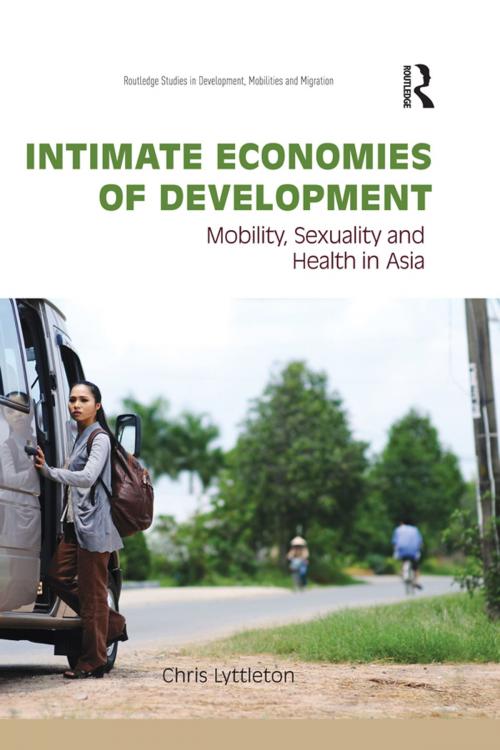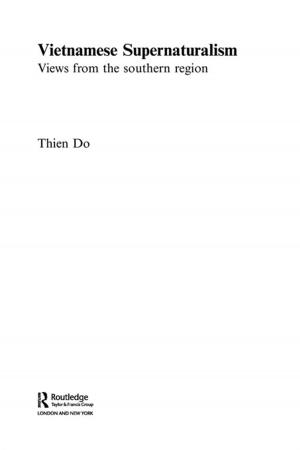Intimate Economies of Development
Mobility, Sexuality and Health in Asia
Business & Finance, Economics, Sustainable Development, Economic Development| Author: | Chris Lyttleton | ISBN: | 9781136663499 |
| Publisher: | Taylor and Francis | Publication: | April 11, 2014 |
| Imprint: | Routledge | Language: | English |
| Author: | Chris Lyttleton |
| ISBN: | 9781136663499 |
| Publisher: | Taylor and Francis |
| Publication: | April 11, 2014 |
| Imprint: | Routledge |
| Language: | English |
Aspirations, desires, opportunism and exploitation are seldom considered as fundamental elements of donor-driven development as it impacts on the lives of people in poor countries. Yet, alongside structural interventions, emotional or affective engagements are central to processes of social change and the making of selves for those caught up in development’s slipstream.
Intimate Economies of Development lays bare the ways that culture, sexuality and health are inevitably and inseparably linked to material economies within trajectories of modernization in the Greater Mekong Sub-region. As migration expands and opportunities proliferate throughout Asia, different cultural groups increasingly interact as a result of targeted interventions and globalising economic formations; but they do so with different capabilities and expectations. This book uniquely grounds its arguments in interlocking details of people's everyday lives and aspirations in developing Asia, while also engaging with changing social values and moral frameworks. Part and parcel of a widening landscape of mobility and contingent intimacy is the ever-present threats of infectious disease, most prominently HIV/AIDS, and human trafficking. Thus, impact assessment and targeted interventions aim to address negative consequences that frequently accompany infrastructure development and market expansion. This path-breaking book, drawn on more than 20 years of ethnographic research in the Mekong region, shows how current models of mitigation cannot adequately cope with health risks generated by wide-ranging entrepreneurialism and enduring structural violence as dreams of ‘the good life’ are relentlessly enmeshed in strategies of livelihood improvement.
Aspirations, desires, opportunism and exploitation are seldom considered as fundamental elements of donor-driven development as it impacts on the lives of people in poor countries. Yet, alongside structural interventions, emotional or affective engagements are central to processes of social change and the making of selves for those caught up in development’s slipstream.
Intimate Economies of Development lays bare the ways that culture, sexuality and health are inevitably and inseparably linked to material economies within trajectories of modernization in the Greater Mekong Sub-region. As migration expands and opportunities proliferate throughout Asia, different cultural groups increasingly interact as a result of targeted interventions and globalising economic formations; but they do so with different capabilities and expectations. This book uniquely grounds its arguments in interlocking details of people's everyday lives and aspirations in developing Asia, while also engaging with changing social values and moral frameworks. Part and parcel of a widening landscape of mobility and contingent intimacy is the ever-present threats of infectious disease, most prominently HIV/AIDS, and human trafficking. Thus, impact assessment and targeted interventions aim to address negative consequences that frequently accompany infrastructure development and market expansion. This path-breaking book, drawn on more than 20 years of ethnographic research in the Mekong region, shows how current models of mitigation cannot adequately cope with health risks generated by wide-ranging entrepreneurialism and enduring structural violence as dreams of ‘the good life’ are relentlessly enmeshed in strategies of livelihood improvement.















